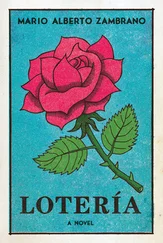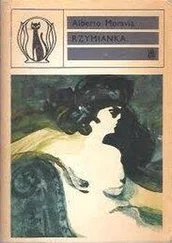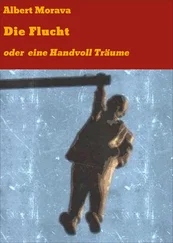His repulsion at being near his mother led him to spend more and more time at Vespucci beach. But the other, different torments that awaited him there made it no less hateful than home. The boys’ attitude toward him after the boat ride with Saro had not changed. Indeed, it had taken on a definitive aspect, as if based on unshakable conviction and judgment. He was the boy who had accepted that fatal, notorious invitation from Saro, and nothing would change their minds. So their initial envious contempt motivated by his wealth was compounded by a scorn based on his supposed deviance. In a sense, to their brutish minds, the one seemed to explain, to give rise to the other. He was rich, they insinuated through their cruel, humiliating behavior — was it any wonder he was deviant as well? Agostino quickly discovered how close the correlation between the two accusations was, and he came to the vague realization that this was the price he had to pay for being different and superior: a social superiority that was displayed in his finer clothing, his talk about the comforts of his home, his tastes, his speech; a moral superiority that drove him to reject allegations of his relations with Saro, and that constantly appeared in his obvious loathing for the boys’ behavior and manners. Consequently, more to express the humiliating state in which he found himself than out of conscious desire, he decided to be the person he thought they wanted him to be, one identical to them. He deliberately started wearing his ugliest and most worn-out clothes, to the great dismay of his mother, who no longer recognized in him any sign of his former vanity. He deliberately stopped talking about his house and his wealth. He deliberately pretended to appreciate and enjoy the behavior and manners that still horrified him. Worse still, and after a painful struggle, one day when they were teasing him, as usual, about his ride with Saro, he deliberately said that he was tired of denying the truth, that the things they were saying about him really had happened, and that he had no problem telling them about it. These assertions startled Saro, but he carefully avoided contradicting them, perhaps out of fear of exposing himself. This open acknowledgment that the rumors which had tormented him were true initially created great amazement, since the boys didn’t expect such boldness from someone so timid and bashful. But then a torrent of indiscreet questions followed about what had actually happened, and these completely overwhelmed him; flustered and upset, he refused to say another word. The boys interpreted his silence in their own way, of course, as the silence of shame rather than what it really was: ignorance and the inability to lie. And the brunt of their usual teasing and contempt grew even worse.
Despite this failure, however, he really had changed. More from his daily association with them than by any act of will, he had grown more like the boys without realizing it, or rather, he had lost his former pleasures without managing to acquire any new ones. More than once, when he’d had enough, he avoided Vespucci beach and sought out the simple companions and innocent games of Speranza beach with which his summer had begun. But there was something so bland about the polite children who awaited him there; their amusements ruled by parents’ warnings and nannies’ supervision were so boring, their talk of school, stamp collections, adventure books, and other such things, so insipid. The truth was that the camaraderie of the gang, their foul language, their talk about women, stealing from the fields, and even their violence and harsh treatment of him had transformed him and made him adverse to the old friendships. Something that happened during that period confirmed his belief. One morning, arriving later than usual at Vespucci beach, he found neither Saro, who was off doing errands, nor the gang. Despondent, he sat down on a boat by the water. While he was staring at the beach, hoping that at least Saro would appear, he was approached by a man and a boy who was perhaps two years younger than Agostino. The man was short with fat stubby legs beneath a protruding belly and a round face with a pince-nez clamped to a pointed nose. He looked like an office worker or a teacher. The pale skinny boy, wearing bathing trunks a couple of sizes too large, was hugging to his chest an enormous, brand-new leather soccer ball. Holding his son by the arm, the man came up to Agostino and looked at him for a while, undecided. Finally he asked if they couldn’t go for a boat ride. “Of course you can,” replied Agostino without hesitation.
The man looked at him skeptically, peering over his eyeglasses, and then asked how much an hour would cost. Agostino knew the fares and told him. Then he realized the man had mistaken him for the boatman’s son or helper, which somehow flattered him. “All right, let’s go,” the man said.
Without a second thought, Agostino took the raw pine log that served as a roller and placed it under the stern of the boat. Then, grabbing hold of the corners with both hands, in an effort redoubled by a strange surge of pride, he pushed the boat into the water. After helping the boy and his father climb in, he jumped aboard himself and took command of the oars.
For a little while, on the calm and deserted early-morning sea, Agostino rowed without saying a word. The boy hugged the ball to his chest and looked at Agostino with a wan expression. The man, seated awkwardly, his belly between his legs, twisted his head around on a fat neck and appeared to be enjoying the landscape. Finally he asked Agostino whether he was the boatman’s son or helper. Agostino replied that he was the helper. “And how old are you?” the man inquired.
“Thirteen,” said Agostino.
“You see,” said the man to his son, “this boy is almost the same age as you and he’s already working.” Then, to Agostino, “Do you go to school?”
“I wish… but how can I?” replied Agostino, taking on the deceitful tone he had often heard the boys in the gang adopt to address similar questions. “I gotta make a living, mister.”
“You see,” the father turned to his son again, “this boy can’t go to school because he has to work, and you have the nerve to complain because you have to study?”
“We’re a big family,” continued Agostino, rowing vigorously, “and we all work.”
“And how much can you make in a day?” the man asked.
“It depends,” replied Agostino. “If a lot of people come, as much as twenty or thirty lire.”
“Which you naturally give to your father,” the man interrupted.
“Of course,” Agostino replied without hesitation. “Except for tips, of course.”
The man didn’t feel like holding up this particular remark to his son as an example, but he made a grave nod of approval. The son was quiet, hugging the ball to his chest more tightly and looking at Agostino with dull, watery eyes.
“How would you like to have a leather ball like this for yourself, boy?” the man suddenly asked Agostino.
Agostino already had two soccer balls, and they had long been sitting in his bedroom, discarded along with his other playthings. But he said, “Yes, I would like that, of course, but how could we manage? We have to take care of basics first.”
The man turned toward his son and, more to tease, it seemed, than to express his actual intentions, said to him, “Come on, Piero, give your ball to this poor boy who doesn’t have one.” The son looked at the father, then at Agostino, and with an almost jealous vehemence hugged the ball to his chest without saying a word. “You don’t want to?” the father asked softly. “Why not?”
“It’s mine,” the boy said.
“Don’t worry,” Agostino interjected at this point with a phony smile, “it’d be no use to me anyway. I don’t have any time to play, but he…”
Читать дальше












